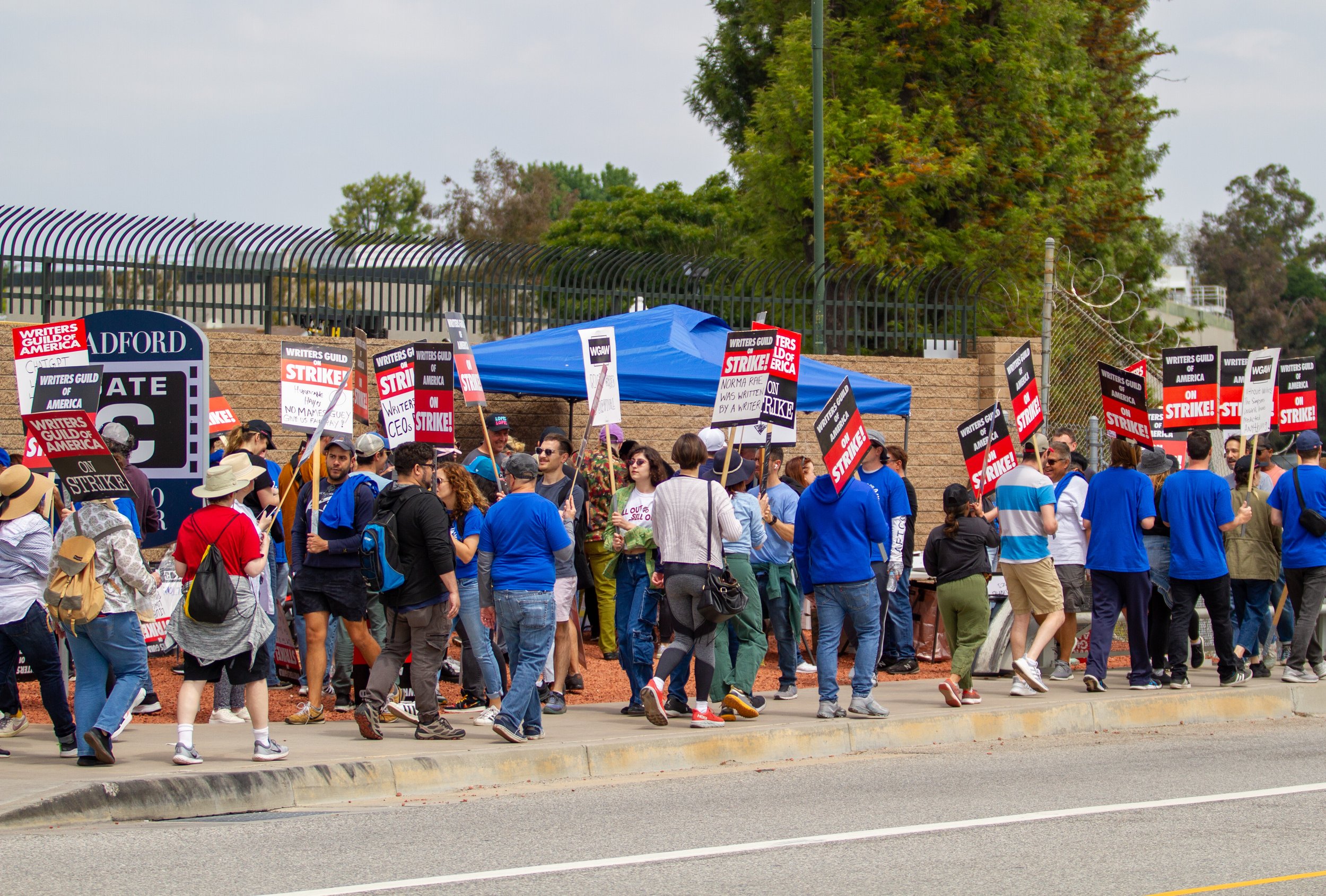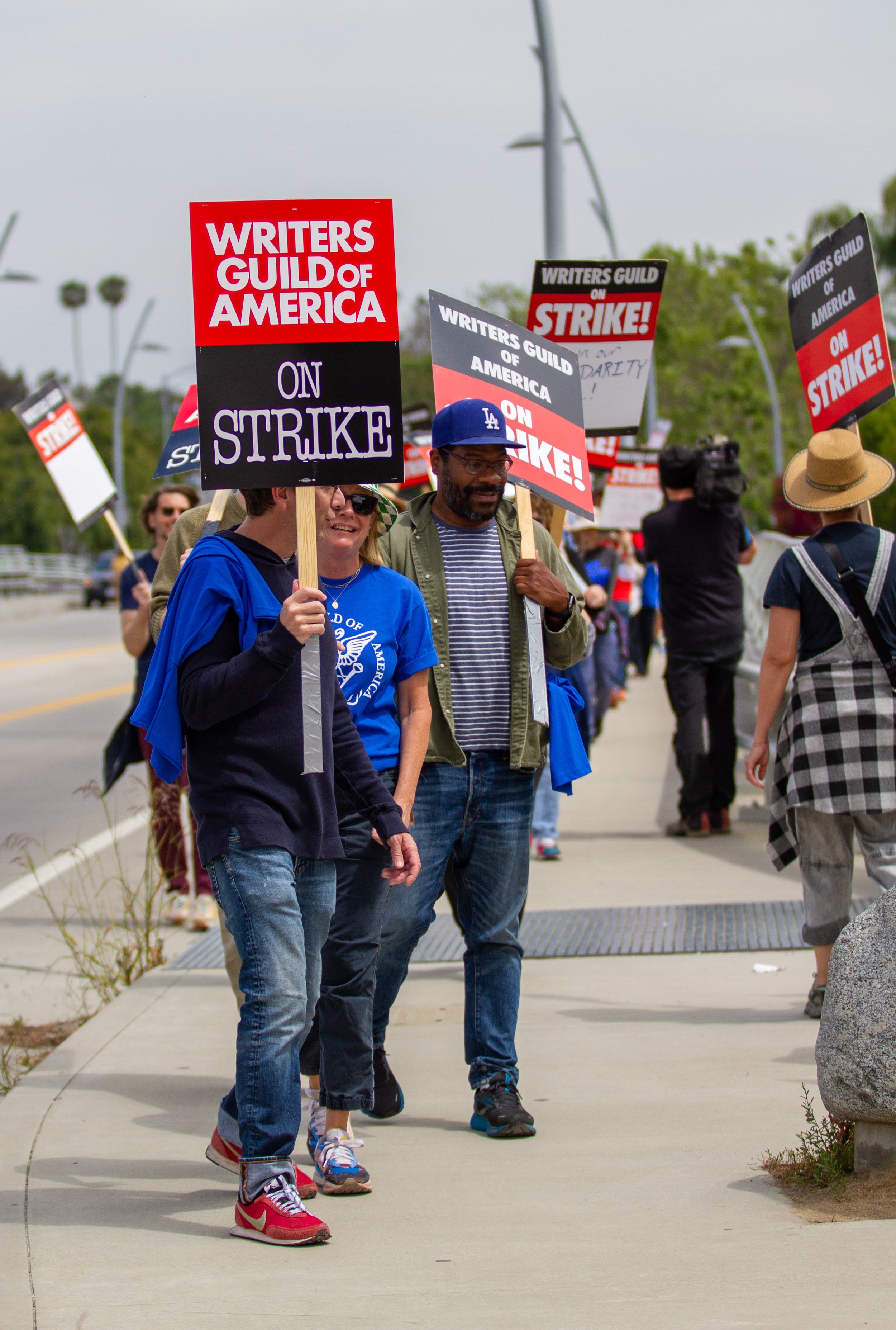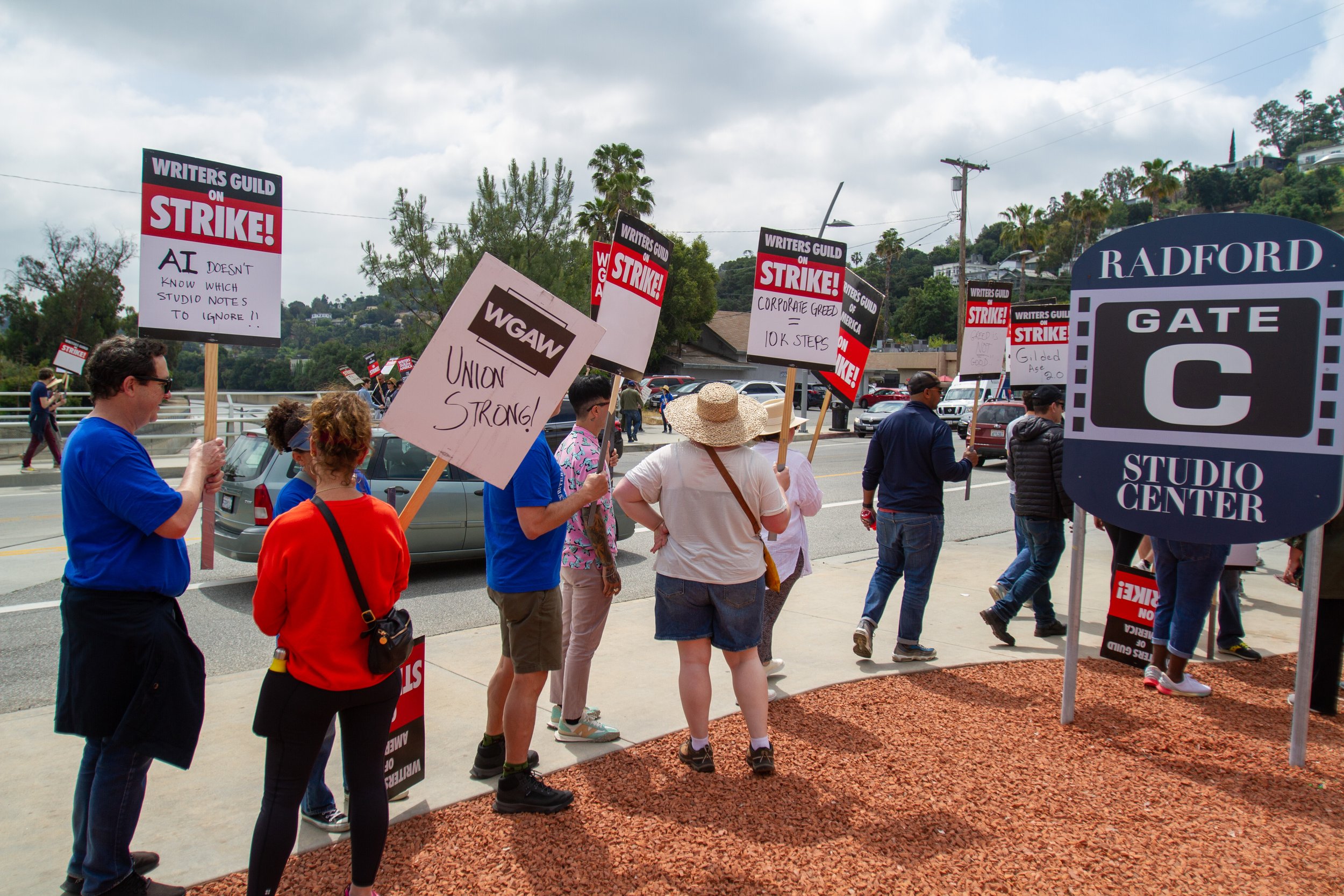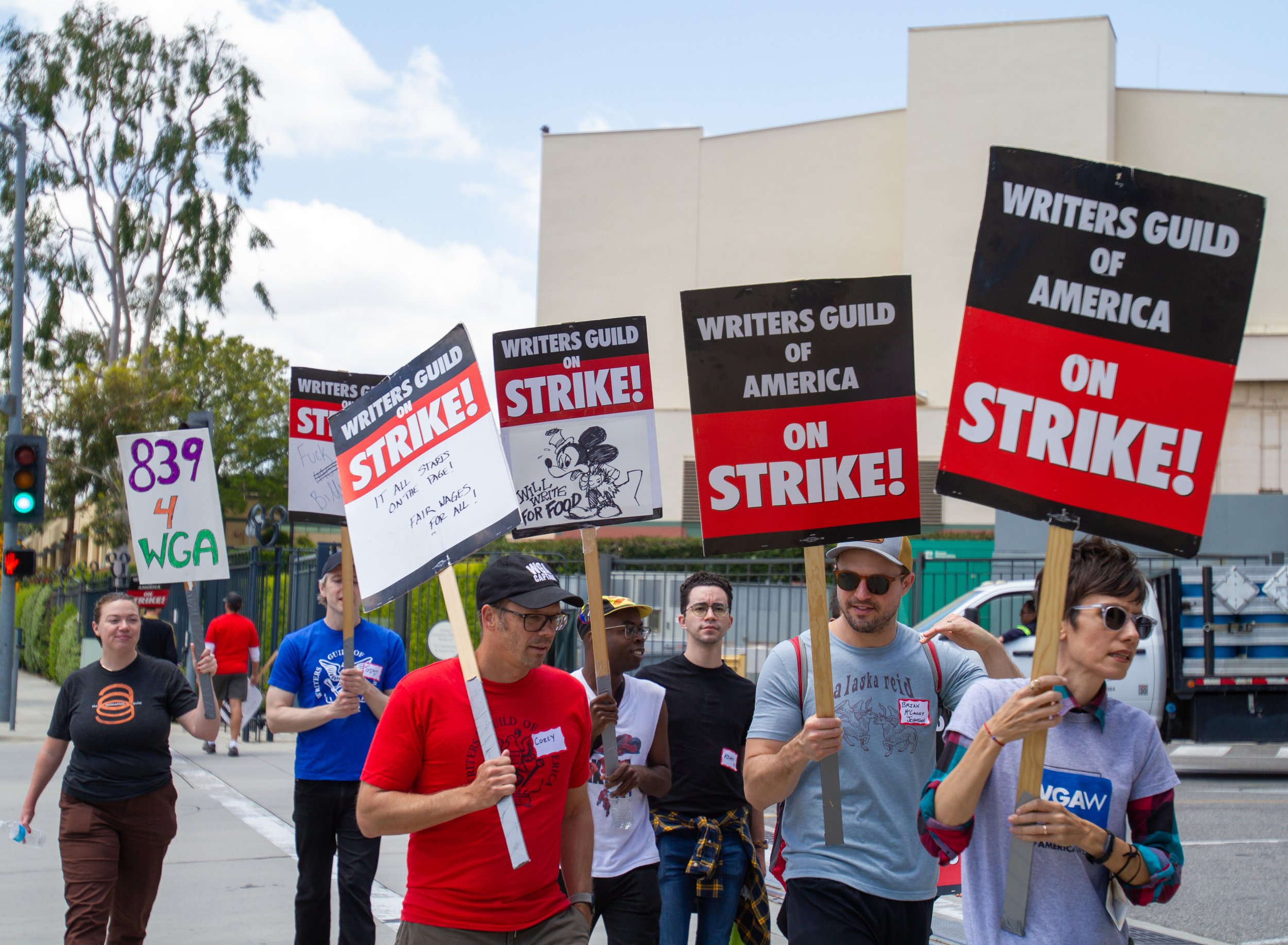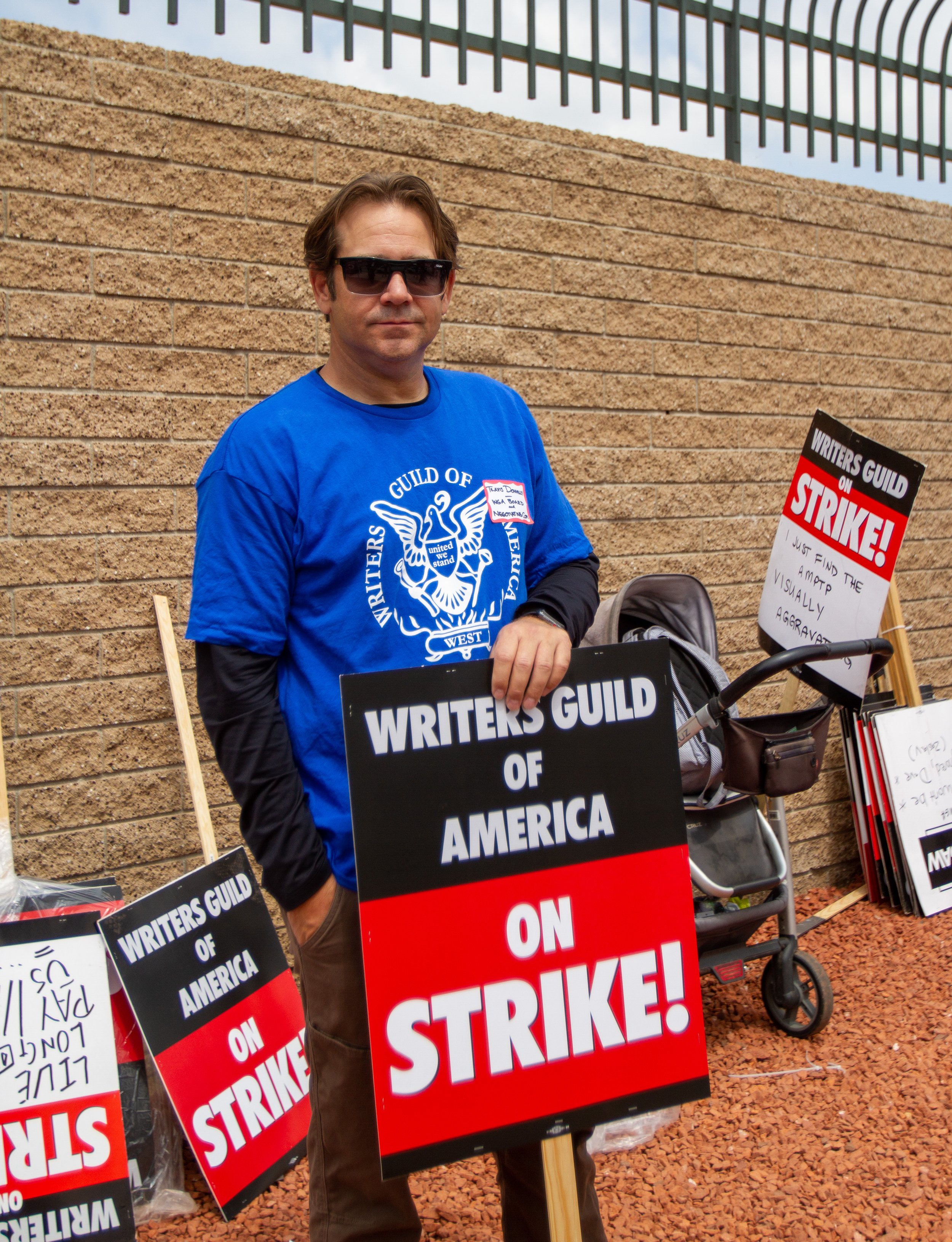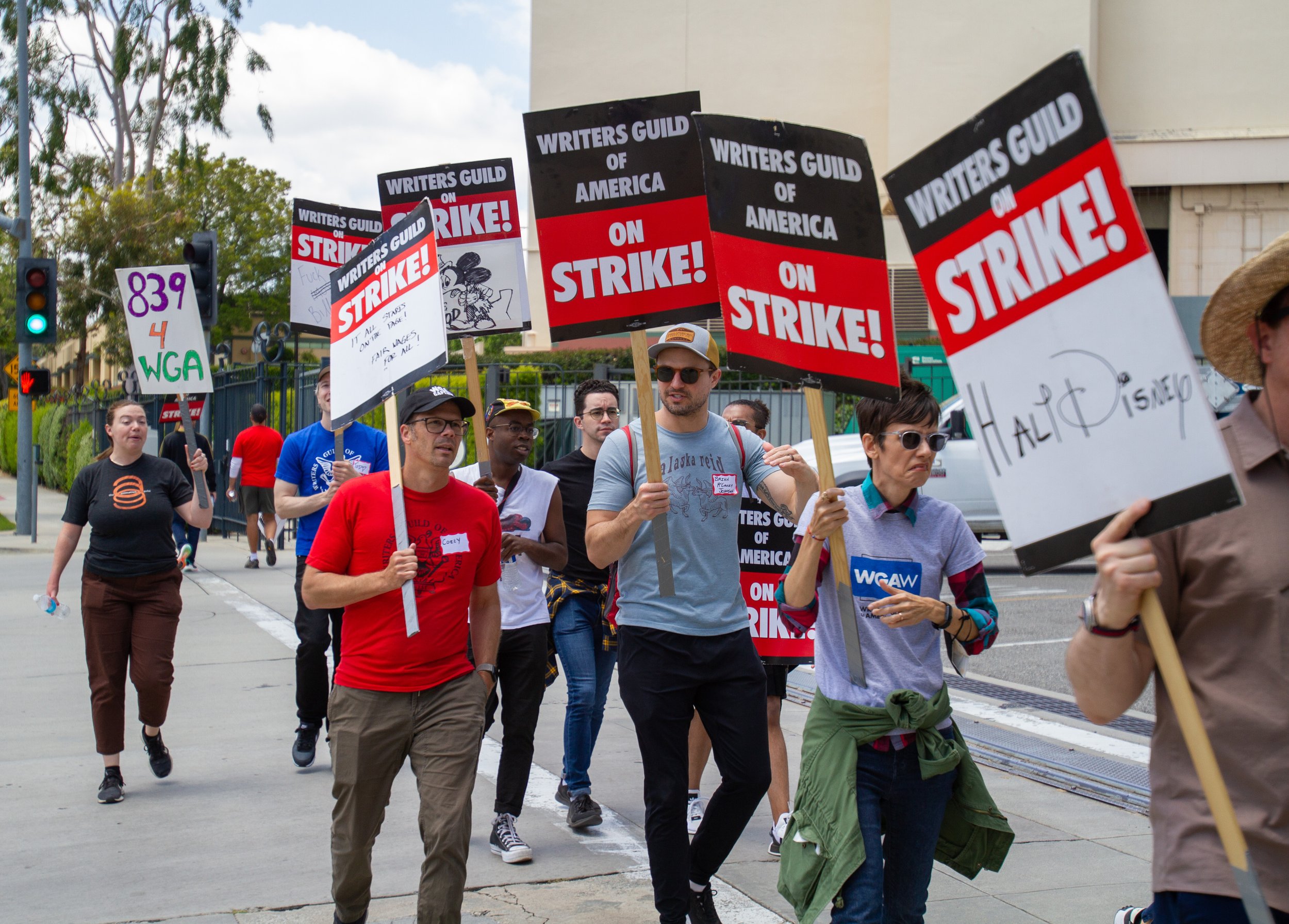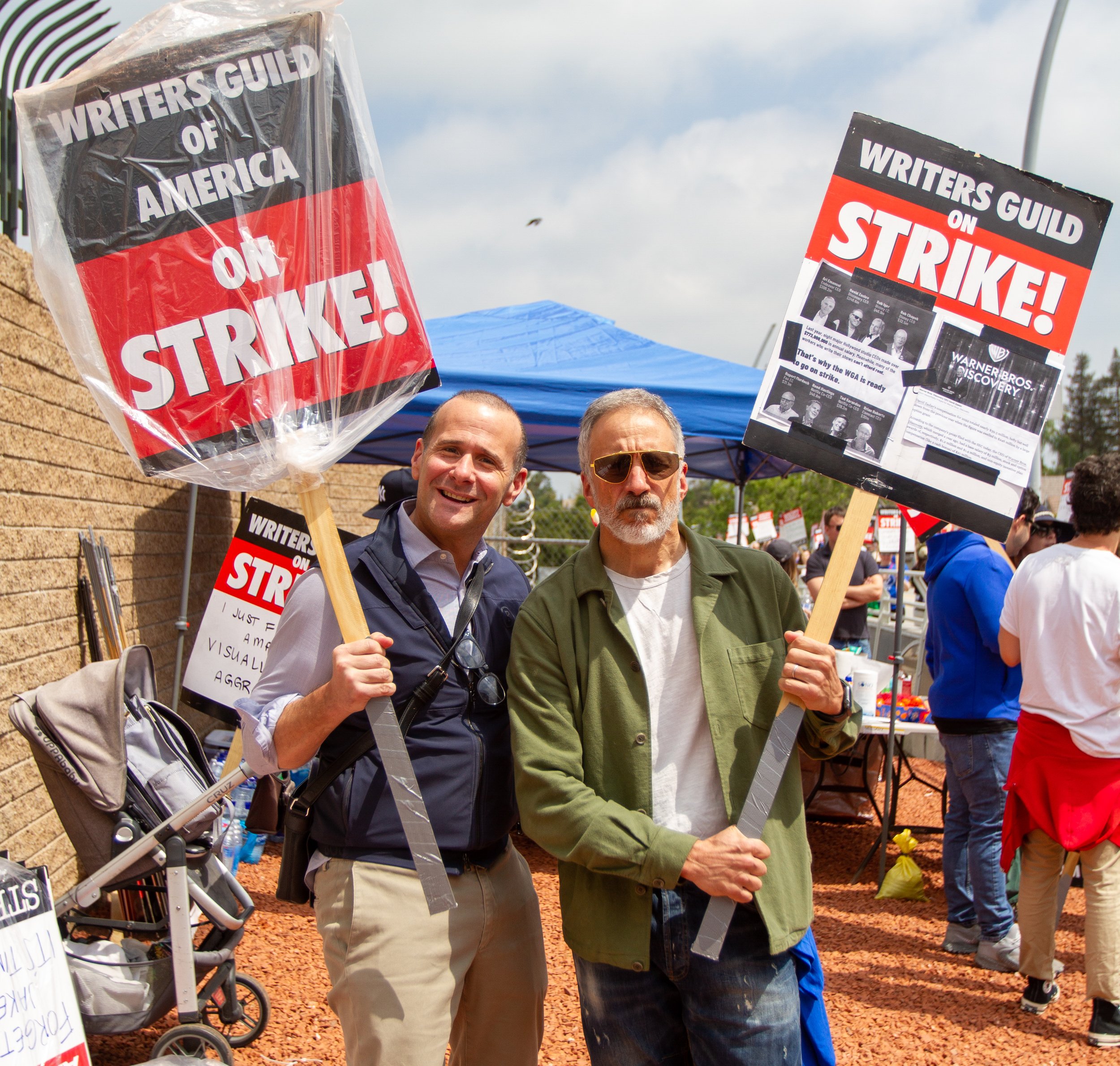Hollywood is Overdue for a Strike
Streaming platforms dominate Hollywood, and writers have gotten lost in the sweeping change.
The Writers Guild of America (WGA) and supporters have taken to the streets with the intention to force the Alliance of Motion Picture and Television Producers (AMPTP) to fairly negotiate their contract. This strike is a long time coming, as the industry has changed immensely through the rise of streaming and new technology. The WGA’s contract, outside of standard annual raises, has stayed virtually the same.
“The WGA Negotiating Committee began this process intent on making a fair deal, but the studios’ responses have been wholly insufficient given the existential crisis writers are facing,” read WGA’s statement posted on their website.
The fight is on to preserve screenwriting as a profession. What is currently a vital part of television and film making is slowly deteriorating into a freelance position at the hands of studios looking to spend less and profit more.
“We create the blueprint that builds the entertainment that has made them close to $30 billion a year in revenues,” said Travis Donnelly, screenwriter and WGA board member.
The WGA went on strike Tuesday, May 2 after failing to reach an agreement in their contract negotiations with the AMPTP.
Donnelly took part in the negotiations for six weeks prior to the strike decision. He joined the WGA the summer prior to the 2007-2008 strike, which he said inspired him to be more involved in leadership.
“We negotiated for a couple of weeks, and then we took a strike authorization vote and got a 97.85% approval from our members,” Donnelly said. “That said, we, unfortunately, went back and tried to negotiate with them for two more weeks. But we were left with the clear sense that they did not understand how important this negotiation with us is.”
In the 15 years since the last strike, which lasted 100 days, streaming surged in popularity. According to National Public Radio, in 2022 streaming platforms accounted for nearly “34.8% of viewership in July, while cable accounted for 34.4% and broadcast came in third at 21.6%.”
In a time when technology is constantly evolving, the AMPTP can not expect their old model to stay the same. While increases in streaming residuals were negotiated into the WGA’s 2020 contract, those new benefits only apply to shows whose production started after the new contract was signed.
In made-for-television projects, writers receive revenue based residuals. This means they receive a standard payment, as well as an additional percentage each time their show is rerun, which worked well in a time where people turned to cable television for entertainment.
For streaming shows, writers currently receive fixed residuals based on factors such as the type of project (episodic series or comedy/variety) and running time. The amount of viewers a show receives does not impact a writer's pay as it does with revenue based residuals.
In negotiations, the WGA sought to establish a viewership-based residual that rewards writers based on a show’s success. The AMPTP rejected this proposal, and refused to make a counter offer.
The WGA is also looking to close the gap between foreign and U.S. residuals. According to Donnelly, the residual rate based on foreign subscribers is a small fraction of the rate based on U.S. subscribers.
“Residuals is how you have longevity in this business. You’re getting paid on your creative work after the production cycle is over,” said Redelia Shaw, a Communications and Media Studies professor at Santa Monica College. While Shaw is currently a full-time professor, she also belongs to the Directors Guild of America (DGA) and works as a second assistant director, or in her own words, a “worker bee.”
“What has happened is the streaming work model has opened up a whole new avenue of loopholes that the companies have taken advantage of, and has devalued our work and driven our wages down,” Donelly added.
One of these “loopholes” is a writer’s term of employment. With the rise of streaming, limited series and fewer episodes per season are the current trends. Studios are pumping out content faster than ever, which means writers are given more work in less time for the same pay.
In the past, shows ran an average of 22 episodes per season, and writers were involved throughout production and post-production. Donnelly explained that streaming has “separated out that process” and essentially cut writers out of production completely, shortening their term of employment.
The WGA sought to establish a minimum number of writers per writers’ room and a guaranteed number of weeks of employment dependent on the type of project. The AMPTP also refused this proposal without making a counter.
With shortened terms of employment and a lack of residual compensation, many writers are unable to make a liveable wage and their opportunities to get in a writer’s room are few and far between. Screenwriting is slowly evolving into a freelance position, which is unsustainable as a career.
“I can understand the desire for writers to have a living wage,” Shaw said. “If they don’t, then that means people who are not from a certain class will have a hard time getting into the industry. It will make it really hard for people who are graduating from college, who want to be screenwriters, to get their foot in the door in a writers’ room.”
While the AMPTP claims they can not afford these proposals, according to the WGA’s report, industry profits went from $5 billion in 2000 to $28 billion in 2021 and remained at a high throughout the pandemic.
Another point that has been heavily discussed by the media is the use of AI in scriptwriting. The WGA proposed to “regulate use of artificial intelligence on MBA- (Minimum Basic Agreement) covered projects: AI can’t write or rewrite literary material; can’t be used as source material; and MBA-covered material can’t be used to train AI.”
The AMPTP rejected the proposal and offered “annual meetings to discuss advancements in technology.”
“I think it's clear the reason they're fighting so hard against it is they must be planning to use it,” Donnelly said. “What we've asked for as a guild, and again, is reasonable and common sense, is that the original source material, the original literary material can't come from an AI. You can't have an AI generate a bad script, and then just pay a writer less money to actually make it good.”
But among the picket lines and cleverly worded signs is a sense of community between writers and other Hollywood unions. Many members of the DGA, Screen Actors Guild - American Federation of Television and Radio Artists (SAG-AFTRA), and teamsters are refusing to cross picket lines as their own contract negotiations are set to begin later in the year.
“The DGA starts our negotiations on May 10, which is Wednesday, and we will see how they go,” Shaw said. “Our contract, this cycle, ends on June 30. SAG-AFTRA, they go to the mat on June 7 with negotiations with the AMPTP.”
Jillian Rose Reed, a SAG-AFTRA actress known for her portrayal of Tamara in the MTV show “Awkward,” attended the picket alongside members of Cynthia Bain’s Young Actors Studio where she teaches.
“It was so nice to get out there and see some familiar faces and just a bunch of other industry people who are all fighting for the same cause,” said Reed. “And to be completely honest, we hope this sets the tone for the next negotiations that are coming up with the DGA and with SAG.”
This refusal to cross the picket lines has caused shows such as Apple TV’s “Severance” to halt production, and late night talk shows have been forced to play reruns.
Writers are not only fighting for their own guild but also paving the way for other unions. SAG-AFTRA and the DGA would also benefit from a change in the current residual model.
“Even in my experience with Awkward … being able to meet the qualifications to get those residuals is definitely not something that is super easy,” said Reed. “So that is one of the negotiation points that I think is a really big deal, because these big corporations are making money off of this intellectual property time and time and time again, but nobody else is.”
Behind the scenes of hit shows and blockbuster films are a slew of writers, cast, and crew putting their hearts and souls into the projects and contributing to their success. The demands of the WGA are not unreasonable; they are simply seeking to protect a vital pillar of the industry.
“I guess the message I just want to get across is, at the end of the day, we're fighting for the survival of writers. At the end of the day, we're fighting for writers to be able to make the living they deserve,” Donnelly said. “I'm certain we're going to achieve that.”
Those looking to join the picket lines can find their schedule on the WGA website.


